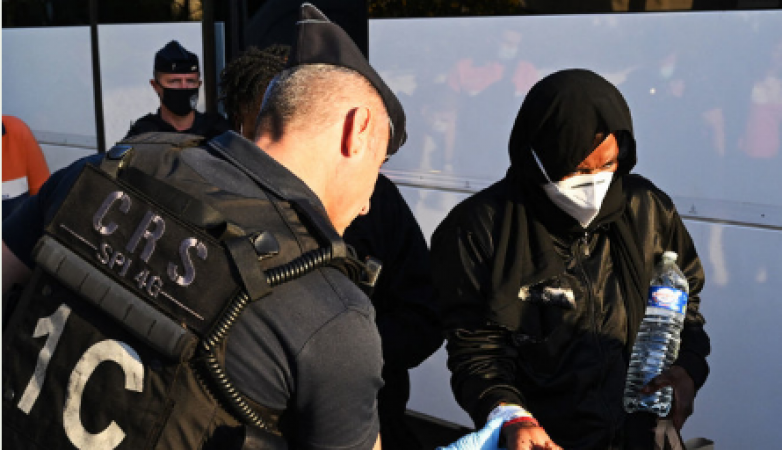
Rome: Following an 11-hour operation, Doctors Without Borders (MSF) reported that more than 400 migrants had been rescued from a boat off the coast of Malta.
The distress signal was picked up by MSF's rescue ship, the Geo Barents, as it was making its way to the Mediterranean to seek shelter from the storm.
At 4:00 am on Tuesday, "after more than 10 hours of navigation in a stormy sea," the Geo Barents arrived at the boat, according to MSF.
Unfortunately, the weather prevented our team from performing the rescue directly, which could have put both the lives of the victims and the MSF team at risk.
Also Read: Australia bans TikTok from federal government devices
The Geo Barents was able to launch its speed boats to the vessel by early afternoon, however, according to MSF, who also tweeted images of the deck of the blue and white boat, which was crammed with people wearing life jackets.
A total of 440 people, including 8 women and 30 children, are now safely aboard GeoBarents and receiving care from the team after more than 11 hours of operation.
Italian authorities detained the Geo Barents in February on suspicion of violating recent regulations regarding missions to save lives in the Mediterranean.
The nonprofit organisation claimed that it had been accused of failing to disclose information, including voyage data recorder data on the ship's position and motion.
Giorgia Meloni, the far-right Brothers of Italy party's leader, became prime minister in October after making a commitment to reduce the number of migrants arriving in Italy.
Charity ships must only conduct one rescue at a time under the new law.
Critics claim it raises the risk of fatalities in the most dangerous crossing in the world, the central Mediterranean.
Italy is a popular stop for asylum seekers travelling from North Africa to Europe because of its geographic location, and Rome has long complained about the volume of arrivals.
Also Read: Massive layoffs are expected for Swiss bankers
Only a small portion of those brought ashore are saved by charities; the majority are saved by coast guard or navy vessels.
However, the Italian government claims that charity ships act as a draw and encourage people smugglers.